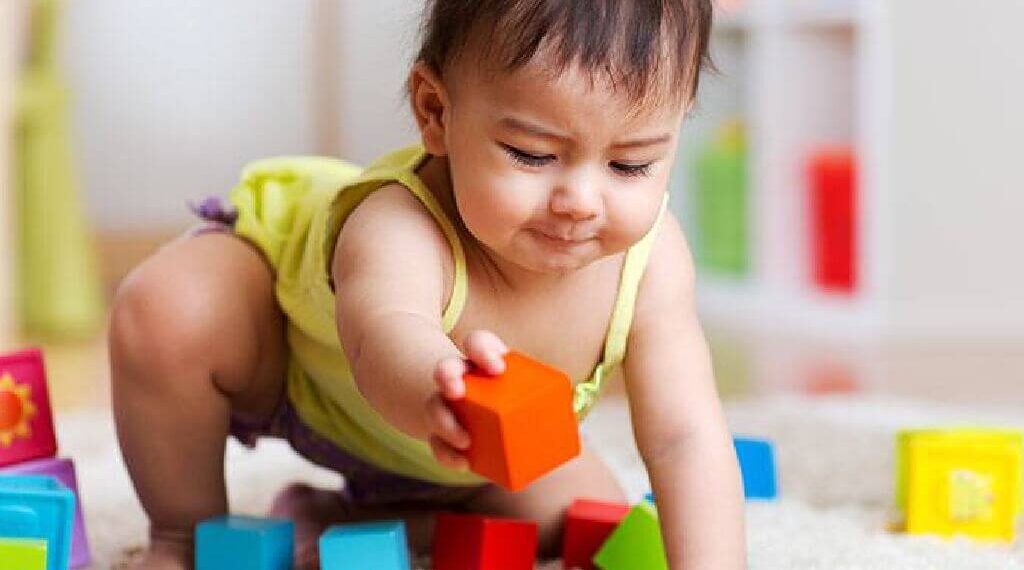Building with blocks is a wonderful activity for children of all ages, but especially for toddlers. Toddlers love to explore materials — what are they made of? What happens when I drop them? Do they make a sound if I shake them? And building blocks are perfect for this type of exploration. But beyond just being fun, block play offers many opportunities for cognitive, social, emotional and physical development.
Cognitive: Block play helps develop math skills such as counting, comparing sizes and shapes. It also supports spatial reasoning skills (for example, understanding that the size of an object stays the same even if it’s moved across the room).
Social: Block play involves turn taking and sharing — necessary skills for future cooperative learning experiences. Building with blocks together builds bonds between parent and child, siblings, or friends.
Emotional: Building with blocks promotes self-esteem and a sense of accomplishment as children build towers that don’t fall down or create other “masterpieces.” However, it is crucial that you make your purchase from the right avenue. For example, you should consider looking for eco friendly toys at Play Edo Australia.
When you think back to your childhood, chances are one of your earliest memories is playing with blocks. As an adult, you may appreciate how these building toys helped develop your child’s motor skills and gave them a sense of accomplishment. But did you know that block play also helps children develop important pre-reading skills?
Blocks are great for fostering a child’s creativity and imagination. Children can use blocks to build anything they want. They can create their favorite animal or create a world that only they know. Block play is so important to childhood development because it gives children the freedom to imagine, create and explore ideas without limits.
There is no right way to play with blocks! If your child likes building tall towers, then let them do it! It’s important not to limit their potential by telling them there is only one way of doing something. Letting children experiment and explore on their own will help instill a sense of curiosity in them for when they start school.
Blocks can help your child learn about math concepts like balance, weight, volume and measurement by comparing objects in size and height. They are also great tools for learning shapes and colors while helping improve fine motor skills.
Building with blocks helps children learn about balance and proportion. This is a pre-math skill, as they start to recognize patterns, understand spatial relations and practice measuring.
What is clear is that there are several advantages to child play with blocks, and parent should make every effort to encourage this activity. Of course, parents do not need a specific reason to encourage their child to play, they just want to see them happy and growing. The benefits of play with blocks are seldom acknowledged by parents, but the simple act of setting up the blocks in configurations can help children develop motor skills in their fingers, wrists, and arms. This can be an important milestone early on in a child’s development. While blocks may seem almost too simple an activity for a child with so much else to distract them with, it does not have to be relegated to the past as our ancestors did for many generations.

